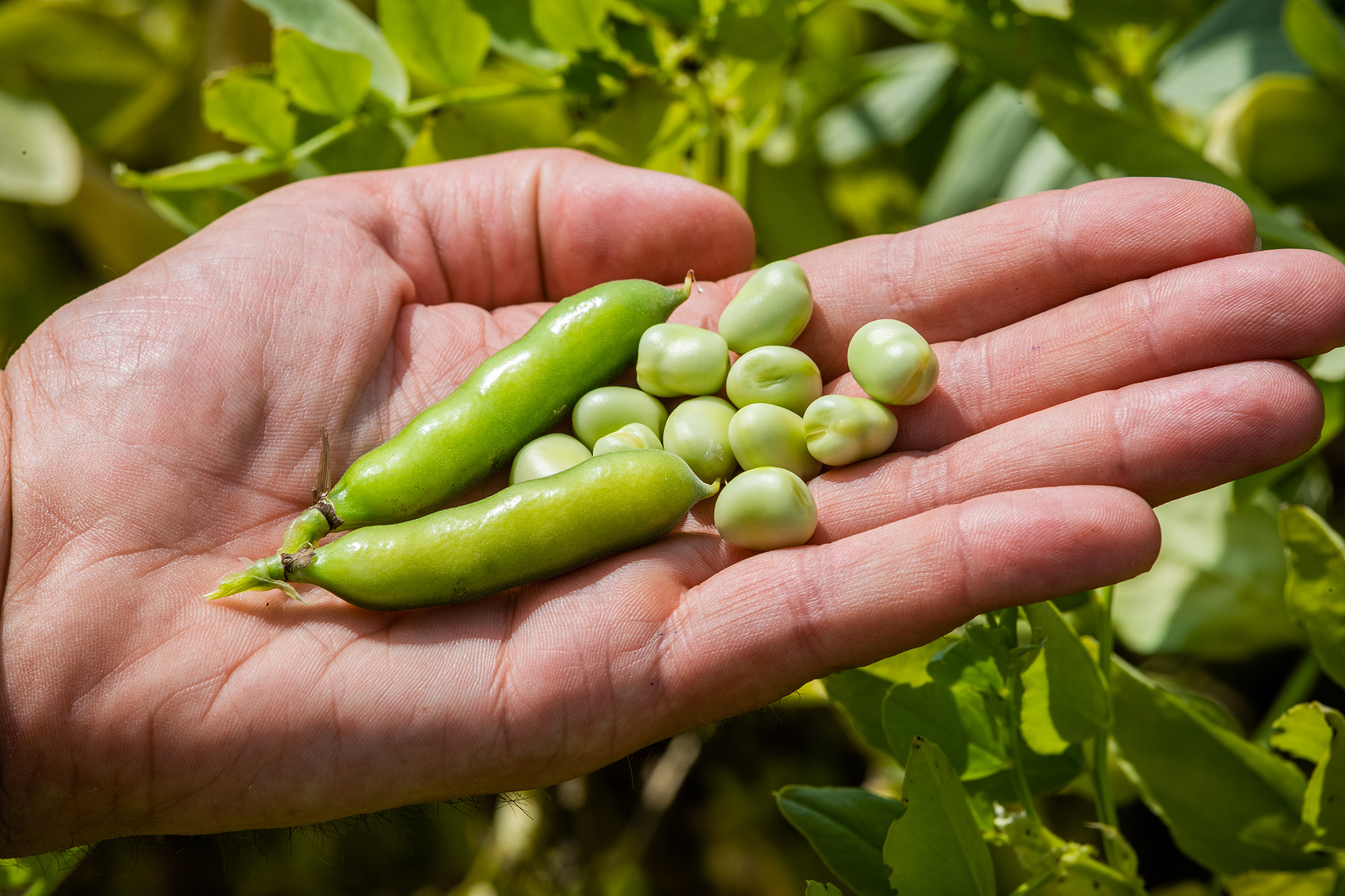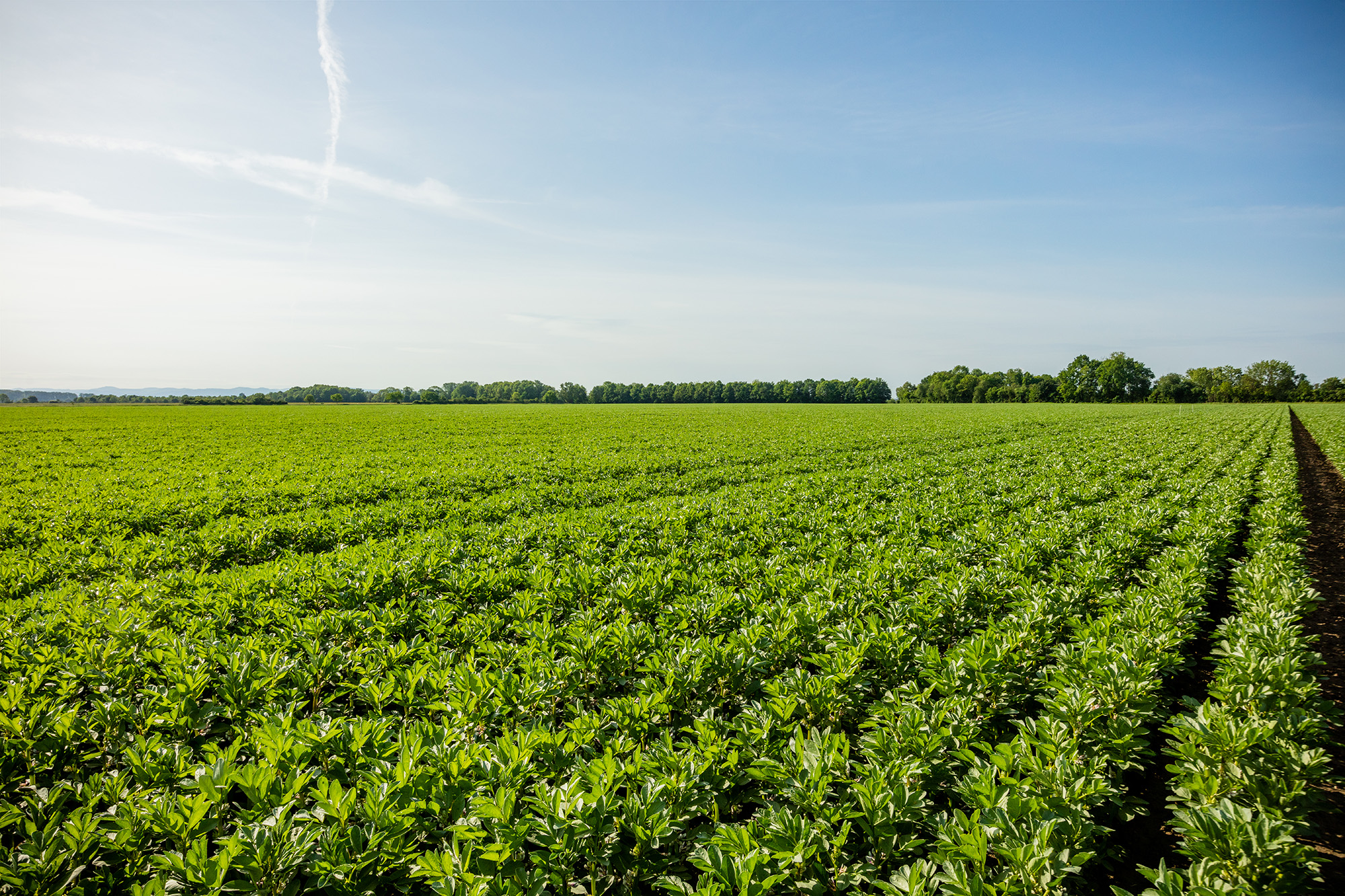

PPTI Web Exclusive: Faba’s moment – the bean that could redefine plant protein
From spring stews to supermarket shelves, the faba bean is moving into the spotlight. Fréderic Fernandes of BENEO explains why its clean-label credentials, functional versatility, and sustainability edge could make it the plant-based industry’s next star
Walk into a supermarket in 2025 and the plant-based boom is impossible to miss. The chilled aisle is crowded with oat lattes, coconut yogurts, and almond cream cheese. The freezer holds pea-protein ‘chicken’ tenders, jackfruit ‘pulled pork’, and mycoprotein meatballs. Even the meat case now contains blended burgers – half beef, half plant.
For years, soy and pea ruled this landscape. But now, a new contender is stepping into the frame: the faba bean. It is not the most obvious protein source. In much of the world, faba beans (or broad beans) are more often associated with spring stews or falafel than cutting-edge food technology. Yet for Fréderic Fernandes, Product Manager Functional Proteins at BENEO, the bean’s low profile is an advantage. “Being plant-based alone is no longer enough,” he says. “Especially for flexitarian consumers, you need a clear nutritional value proposition in your final product.”

This is not just another ‘green is good’ pitch. The new plant-based customer expects the same – or better – taste, texture, and nutrition as the animal product they are replacing. Sustainability still matters, but it is no longer the only story in town.
Plant-based foods once thrived on a binary choice: animal or no animal. That clarity has given way to a far more complex consumer landscape. The most influential group is not vegan or vegetarian, but flexitarian – the millions of shoppers who split their protein intake between plants and animals. “They are open to alternatives, but they are also quick to walk away if it doesn’t meet their expectations,” Fernandes explains. “If you can match the sensory experience of the animal product, you’ve suddenly got a much larger audience. But you have to deliver.”
That means the familiar ‘big three’ demands – taste, texture, and price – are back at the top of the plant-based industry’s to-do list. While technology has narrowed the gap, the so-called holy grail of complete parity remains elusive. Fernandes is candid about the challenge. At a biochemical level, plant and animal proteins are fundamentally different, so matching their functionality is not straightforward. But with advances in processing and formulation, that gap is narrowing, and BENEO’s approach has been to combine its own plant protein expertise with the capabilities of Meatless, the texturates specialist it acquired in 2022.

From field to function
So why faba? Nutritionally, it is a powerhouse – around 30% protein with a robust essential amino acid profile. Functionally, it is a shape-shifter: faba bean protein concentrates can emulsify, bind, and thicken, making them valuable across bakery, dairy alternatives, and meat analogues. One of BENEO’s biggest wins with faba has been in emulsification. Eggs perform this role brilliantly in many recipes, so replacing them without compromising quality is a classic challenge. “With faba, we’ve developed an egg-free meringue and even a shortbread biscuit where eggs are completely replaced,” Fernandes explains. The taste is another plus. As a concentrate, in many applications BENEO’s faba bean protein can beat pea protein isolates on taste. That opens up new opportunities in subtle applications like dairy-style drinks, desserts, or mild-flavored snacks where strong legume notes would be unwelcome.
Being plant-based alone is no longer enough. Especially for flexitarian consumers, you need a clear nutritional value proposition in your final product
How the protein is extracted matters, too. Many protein isolates go through wet fractionation – a process involving water, heat, and chemicals – to separate protein from starch. BENEO uses dry fractionation instead: the beans are milled, and air is used to separate protein from starch. The benefits are twofold. First, the method consumes very little energy, no water, and no solvents, leading to a reduced carbon footprint. Second, the resulting protein concentrate retains more natural components like fiber, starch, and micronutrients. “It’s a cleaner label ingredient with a significantly lower environmental impact than many isolates on the market,” Fernandes says.
This sustainability story extends to BENEO’s €50 million processing plant in Obrigheim, Germany. Opened earlier this year, it runs entirely on renewable energy, captures and reuses waste heat, and follows a zero-waste approach in which every part of the bean is used, either for food or feed. Located close to where BENEO’s REDCert2-certified faba beans are grown, the facility benefits from a short supply chain that further reduces its environmental footprint.

Where faba can win
From a commercial standpoint, Fernandes sees three sectors where faba is especially well placed to win market share. Bakery is first, with breads, biscuits, and pastries that can be fortified with protein or improved in structure without impacting flavor. Dairy alternatives come a close second, particularly in yogurts, where creaminess and clean-label credentials are in high demand. Meat and fish alternatives form the third pillar, where BENEO’s collaboration with Meatless is helping to improve the binding, bite, and juiciness of plant-based meats or hybrids.
Innovation is also happening in snacks, where protein enrichment is trending upwards. The balanced amino acid profile of faba makes it a valuable tool in this space, especially when blended with rice or wheat proteins to achieve complete protein claims. Fernandes points to protein bars, cookies, and even crackers as products that can carry both functional benefits and indulgent appeal. Hybrid dairy, too, is an emerging area – products that combine the flavor and mouthfeel of traditional dairy with the nutritional and sustainability benefits of plant-based ingredients are gaining traction among consumers who might not want to abandon dairy entirely.
While crops such as lupin and mung bean are expanding the plant-based toolbox, Fernandes expects the biggest future gains to come from processing technology. Fermentation, for example, can improve digestibility, enhance protein quality, and strip out the beany notes that turn some consumers off. Biotransformation – using enzymatic processes to tailor proteins for specific functions – offers another avenue, enabling food scientists to fine-tune plant proteins for particular applications.

The road ahead
Regulatory changes are also reshaping the field. Stricter standards for vegan labeling, allergen statements, and protein claims are on the horizon, which will force producers toward greater transparency. Fernandes sees this as a positive step that will build consumer trust and make it easier for shoppers to understand exactly what they are buying. On the supply chain side, volatility in meat, fish, and egg markets can play into the hands of plant proteins. The recent egg price spikes in the USA, dubbed ‘eggflation’, are a case in point. Even partial replacement of eggs with plant proteins can stabilize costs and protect supply chains.
For startups and established brands alike, the opportunity is not simply to match what animal proteins can do but to improve on it. Fernandes’s advice is to start with the consumer. “Identify exactly what they want – high protein, a specific texture, a flavor profile – and work backwards from there,” he says. “If you just swap out the animal protein, you’re going head-to-head with something perfected over centuries. Aim to make the product better – tastier, more nutritious, more stable. That’s when you stop being an alternative and start being the preferred choice.”
Timing may be the biggest factor in faba’s rise. Consumer expectations have matured, the plant-based category has diversified, and cost pressures are forcing manufacturers to rethink formulations. With its vertically integrated model – from locally grown, REDCert2-certified beans to its new renewable-powered processing plant, through to Meatless’s texturate expertise – BENEO is poised to control both ingredient quality and scalability. That combination could make faba much more than a supporting act in the plant-based protein story.
As Fernandes puts it, “It’s not just about replacing animal proteins with plant proteins. It’s about improving the end product so it’s something consumers actively prefer. That’s how you succeed in this market.”
If you have any questions or would like to get in touch with us, please email info@futureofproteinproduction.com


-p-800.jpg)



